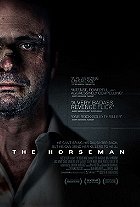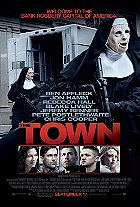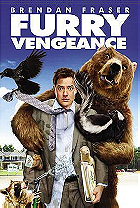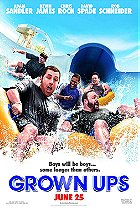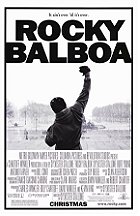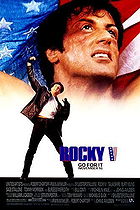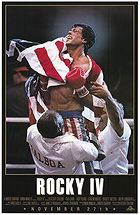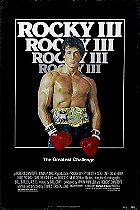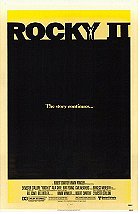2010's The Social Network is a two-hour motion picture consisting almost entirely of dialogue that's about nerdy guys from Harvard who write computer code, get rich and sue each other. Literally, that's The Social Network in a nutshell. And yet, this is easily one of the most exciting, enthralling and compulsively watchable movies of 2010. How does that work, I hear you think? It's simple: great actors, great screenwriting and great filmmaking. Written by Aaron Sorkin (The West Wing) and directed by David Fincher (Zodiac, Fight Club), the film manages to flesh out a gallery of fascinating characters while chronicling several key events in the development and growth of the popular social networking site Facebook. Additionally, through mining Facebook's origin story, Sorkin and Fincher have produced a motion picture that's about far more than its ostensible subject matter.

Essentially, the film consists of a series of flashbacks to illustrate the testimonies being provided in depositions for two separate trials which were held during the latter half of the 2000s, both of which involved Facebook founder Mark Zuckerberg (Eisenberg). When we first meet Zuckerberg, he's a Harvard student whose girlfriend Erica (Mara) is breaking up with him. Afterwards, Mark strikes back with a productive evening of hacking and coding, resulting in a website sensation which humiliates the female students and crashes the Harvard servers. This attracts the attention of a trio of upperclassmen, who hand Mark the task of creating a social interaction site for the school. However, this idea gives Mark the inspiration to create a website called 'The Facebook', which is funded by Mark's only friend Eduardo (Garfield). It rapidly explodes in popularity. Soon, Napster founder Sean Parker (Timberlake) swoops in to take command of the newly renamed Facebook. Sean's involvement alienates Eduardo but provides Zuckerberg with the tools to elevate Facebook from a dorm room project to a worldwide phenomenon.
Sorkin based his script for The Social Network on Ben Mezrich's book The Accidental Billionaires, which is a distillation of countless interviews that were transferred into narrative form. It's interesting to note that Mezrich's primary source for the book was Eduardo, so the events depicted in the book - and, thus, the movie - are understandably slanted towards his point of view. This fact was publicly brought out by Zuckerberg, who also refused to cooperate with Mezrich while he was conducting research for the book. Nevertheless, both the novel and the cinematic interpretation can be said to represent a reasonable account of how Facebook came into being since few of the historical events are in dispute. Throughout the film, Mark's cavalier nature while assembling the site and putting it online is especially interesting. It becomes clear that the concept is not entirely his, but he believes to be entitled to full ownership because he developed the codes and put in all of the work. A viewer is left to decide for themselves what constitutes intellectual property theft, and, more directly, whether Zuckerberg did in fact steal Facebook.

On paper, The Social Network sounds dull. However, the picture received a considerable kick from Aaron Sorkin's exceptional skills as a wordsmith. The Social Network is a whirlwind of talk, and the intelligent, fast-paced dialogue is as exciting as any action sequence from Iron Man 2 or Kick-Ass. David Fincher is not exactly the first filmmaker one would think of to handle Sorkin's wordy script, but the pairing is unexpectedly ideal; Fincher and cinematographer Jeff Cronenweth brought the script to life with moody autumnal imagery which adds depth and dimension to the narrative. With The Social Network, Fincher also further proved his skills as a visually gifted filmmaker, as well as continuing to demonstrate that he's just as adept with characters and story as he is with camerawork. The tense score by Trent Reznor and Atticus Ross is equally beneficial for ensuring viewers never lose interest, too. Granted, a few sequences within the film were ruined by unnecessary visual showmanship (including a flashy rowing race in England), but Fincher otherwise played the material low-key; allowing Sorkin's excellent dialogue to speak for itself and letting Mark's on-screen behaviour be the film's primary special effect.
Maintaining momentum throughout the film is the fast-talking speech pattern adopted by most of the actors. The role of Mark Zuckerberg was ripe for caricature, but star Jesse Eisenberg humanised the character in this career-best performance. Eisenberg, who has existed below the radar for several years now, can never again be labelled as a Michael Cera clone after this film. The actor adeptly conveyed Zuckerberg's anger, hurt and brilliance, as well as the man's vulnerability, arrogance and impatience. Alongside him, Andrew Garfield imbued his role of the wounded Eduardo Saverin with warmth and humanity. Another standout performer here is singer-turned-actor Justin Timberlake as Sean Parker. Timberlake has never been more energetic or charismatic on-screen - he's a genuine movie-stealer. Meanwhile, Rooney Mara (2010's A Nightmare on Elm Street) makes an impact despite limited screen-time, and she's every bit as brilliant as her co-stars.

Ultimately, The Social Network is not a fully rounded picture since it takes a few shortcuts and is thus not definitive. That aside, this is an assured masterpiece, and one of the greatest pictures of 2010. Where Inception and Scott Pilgrim vs. the World dazzled audiences with impressive special effects, The Social Network plays a far more restrained game yet is somehow no less exciting. This is a gripping, expertly made and wonderfully performed character study that conveys a modern story with some classic, almost Shakespearean themes. You do not have to be a Facebook member to enjoy what this movie offers.
9.3/10
 Login
Login
 Home
Home 183 Lists
183 Lists 1663 Reviews
1663 Reviews Collections
Collections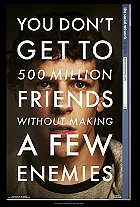
 0 comments,
0 comments, 